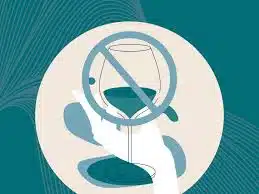You’ve decided To stop drinking…What’s next?

Once you’ve decided to stop drinking, take a deep breath and congratulate yourself! That was a big step. Then, create a plan to quit. If you’ve tried to stop before and found it to be hard to do, consider seeking professional guidance (e.g., a psychologist, social worker, or psychiatrist who has expertise in this area). If you have been drinking heavily, you might need medical support to taper off alcohol, so having an evaluation is important. Once you are ready to take the plunge, set a date to stop. Remove all the alcohol from your home. You want to put as many hassles between you and having a drink as you can.
1) What Are the Best Ways to Get Support While Trying To Stop Drinking?
Seeking support is crucial. Joining a support group such as Alcoholics Anonymous (AA), SMART Recovery or Dharma Recovery is a great way to start. Meetings are both in person and online, so it’s easy to check one out. Find a therapist you feel comfortable with and set up weekly meetings. Confide in friends and family who can provide emotional support. Online forums and communities can also offer a platform to share your experiences and to seek advice (www.myrelationshipwithalcohol.com, Reddit – r/stopdrinking).
2) How To Best Approach Social Situations When Newly Trying To Stop Drinking?
In the beginning, choose social activities that don’t revolve around alcohol, you can work up to challenging situations, but start out easy. Be open with the friends and family you are closest to about your decision to stop drinking. Before going out, practice your responses to typical questions involving drinking including what you are going to say when the wait staff in a restaurant asks if you’d like something to drink. Over time you’ll develop a repertoire of responses to common situations, but it takes some practice, so talking it through can be helpful.
3) What literature/podcasts would be helpful for someone at the beginning of their journey?
Literature like “This Naked Mind” by Annie Grace and “Drinking: A Love Story” by Caroline Knapp are a good start. Podcasts like “Recovery Rocks” and “Sober Curious” can offer valuable insights and support.
4) What Should You Do When Cravings/Triggers Arise? First, you want to understand what your triggers are and avoid as many of them as possible. But there are always triggers that are unavoidable, like feelings of sadness, or loneliness. When you can’t avoid a trigger, and you find yourself craving a drink, you can practice strategies for coping with cravings. Different skills work for each person, so using a trial and error method will allow you to figure out what works best for you. Some common strategies include physical activity, practicing mindfulness, or reaching out to a friend. Distraction techniques are also helpful, like taking a walk, putting on music or engaging in a hobby.
5) How To Fill Time When You Stop Drinking? Explore new hobbies and activities that don’t involve alcohol. Exercise, reading, learning a new skill, or volunteering are excellent ways to fill your time constructively. Building a routine and setting goals can help provide structure and purpose.
6) What are the most common changes you hear from people in your community when they reevaluate their relationship with alcohol and stop drinking? The most common changes people report include improved sleep and more pleasant mornings, more harmonious relationships, better mood, and a generally more positive outlook on life. Many people also report improved self-esteem and pride in their accomplishments.
9) Your advice or motto for anyone who is on the journey to stop drinking
My initial advice to all my patients is to try to slow down. I would encourage people to have a lot of compassion for themselves. Quitting drinking is not easy and it takes a lot of focus and practice. Try to keep your focus on the present moment, don’t worry about how long you are going to stay sober, just don’t drink right now. Some people say, “One day at a time”, but I think there are moments in the beginning that you can take it “Breath by breath”.